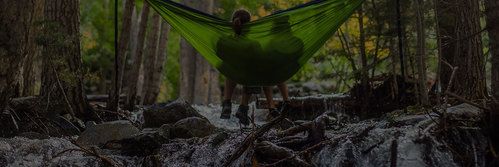Everyone is Called to Orphan Care

“It’s true that some people can’t ‘do that’ themselves—if by ‘that’ they mean take in a child in their current season of life. But orphan care is much larger than taking in a child. If by ‘that’ we mean care for orphans in their distress, then everyone can—and should—do that themselves.”
Since a foster child was placed with my family in early 2015, I’ve heard lots of encouraging comments: “she’s so beautiful,” “we’re praying for you,” and “let us know whatever we can do to help.” But I’ve also heard the same response over and over: “I couldn’t do that myself.”
It’s an understandable response to an overwhelming idea: bringing in a child you don’t know, from a background you don’t understand, with a future you can’t control, into the very center of your life is something most people think is just not feasible.
Some people are overreacting. The challenges are overwhelming, but not insurmountable. I’ve seen multiple people assume they could never take in a child, only to realize that both the need and their capacity to meet that need is greater than they thought. Given the clear command of Scripture—“true religion is this, to care for widows and orphans in their distress” (James 1:27)—we all should make sure we are leveraging what God has given for the marginalized.
But many people are simply being wise. It’s difficult, if not impossible, to take in a foster child if you are a student living in the UCLA dorms, if you are one of three young professionals living in a one bedroom apartment, or if you are currently taking care of both your own kids and your aging parents.
So it’s true that some people can’t “do that” themselves—if by “that” they mean take in a child in their current season of life. But orphan care is much larger than taking in a child. If by “that” we mean care for orphans in their distress, then everyone can—and should—do that themselves.
Jason Johnson compares orphan care to a fast moving river barreling towards a cliff, where it becomes a waterfall. Imagine you and several others are standing by the river when you begin to see children rushing by in the current. Some of you might try to pull kids out of the river immediately, handing them to others behind you to dry off and care for. Some of you might run towards the waterfall to rescue the children who have already passed by. And hopefully some would go upstream to see how these kids are getting in the river in the first place! Whether you are drying kids off, cooking a meal to feed the ones who have been rescued, or heading upstream to try to fix the problem at the source, everyone there is helping these children.
In the same way, orphan care takes many different forms. Some people pull kids our of the river by fostering and/or adopting them. Others head down river to care for children who have aged out of the foster system, many of whom are now adults in poverty or incarcerated. Some head upstream to work on programs and policies that work for better functioning families, or to care for women in crisis pregnancy situations. And we must not forget the many people who stand by cooking meals, praying prayers, mentoring, and walking alongside orphans and the families who have taken them in.
The truth is that everyone is called to orphan care. Maybe your first step is to realize that you can’t take a child into your home. But don’t let that be your last step. Instead, follow it up: “I can’t take a child into my home, but what can I do?” At Cornerstone, we are pursuing true religion that cares for all of the marginalized, orphans included, in their distress. We have a foster care and adoption support group where you can learn more, connections to groups like Royal Family Kids camp where you can provide a positive camp experience for foster kids, opportunities to mentor foster kids in our area of Los Angeles, and we have plenty of families who are pulling kids out of the river this year and who could use a meal, a prayer, and someone to walk with them.
Since a foster child was placed with my family in early 2015, I’ve heard lots of encouraging comments: “she’s so beautiful,” “we’re praying for you,” and “let us know whatever we can do to help.” But I’ve also heard the same response over and over: “I couldn’t do that myself.”
It’s an understandable response to an overwhelming idea: bringing in a child you don’t know, from a background you don’t understand, with a future you can’t control, into the very center of your life is something most people think is just not feasible.
Some people are overreacting. The challenges are overwhelming, but not insurmountable. I’ve seen multiple people assume they could never take in a child, only to realize that both the need and their capacity to meet that need is greater than they thought. Given the clear command of Scripture—“true religion is this, to care for widows and orphans in their distress” (James 1:27)—we all should make sure we are leveraging what God has given for the marginalized.
But many people are simply being wise. It’s difficult, if not impossible, to take in a foster child if you are a student living in the UCLA dorms, if you are one of three young professionals living in a one bedroom apartment, or if you are currently taking care of both your own kids and your aging parents.
So it’s true that some people can’t “do that” themselves—if by “that” they mean take in a child in their current season of life. But orphan care is much larger than taking in a child. If by “that” we mean care for orphans in their distress, then everyone can—and should—do that themselves.
Jason Johnson compares orphan care to a fast moving river barreling towards a cliff, where it becomes a waterfall. Imagine you and several others are standing by the river when you begin to see children rushing by in the current. Some of you might try to pull kids out of the river immediately, handing them to others behind you to dry off and care for. Some of you might run towards the waterfall to rescue the children who have already passed by. And hopefully some would go upstream to see how these kids are getting in the river in the first place! Whether you are drying kids off, cooking a meal to feed the ones who have been rescued, or heading upstream to try to fix the problem at the source, everyone there is helping these children.
In the same way, orphan care takes many different forms. Some people pull kids our of the river by fostering and/or adopting them. Others head down river to care for children who have aged out of the foster system, many of whom are now adults in poverty or incarcerated. Some head upstream to work on programs and policies that work for better functioning families, or to care for women in crisis pregnancy situations. And we must not forget the many people who stand by cooking meals, praying prayers, mentoring, and walking alongside orphans and the families who have taken them in.
The truth is that everyone is called to orphan care. Maybe your first step is to realize that you can’t take a child into your home. But don’t let that be your last step. Instead, follow it up: “I can’t take a child into my home, but what can I do?” At Cornerstone, we are pursuing true religion that cares for all of the marginalized, orphans included, in their distress. We have a foster care and adoption support group where you can learn more, connections to groups like Royal Family Kids camp where you can provide a positive camp experience for foster kids, opportunities to mentor foster kids in our area of Los Angeles, and we have plenty of families who are pulling kids out of the river this year and who could use a meal, a prayer, and someone to walk with them.

